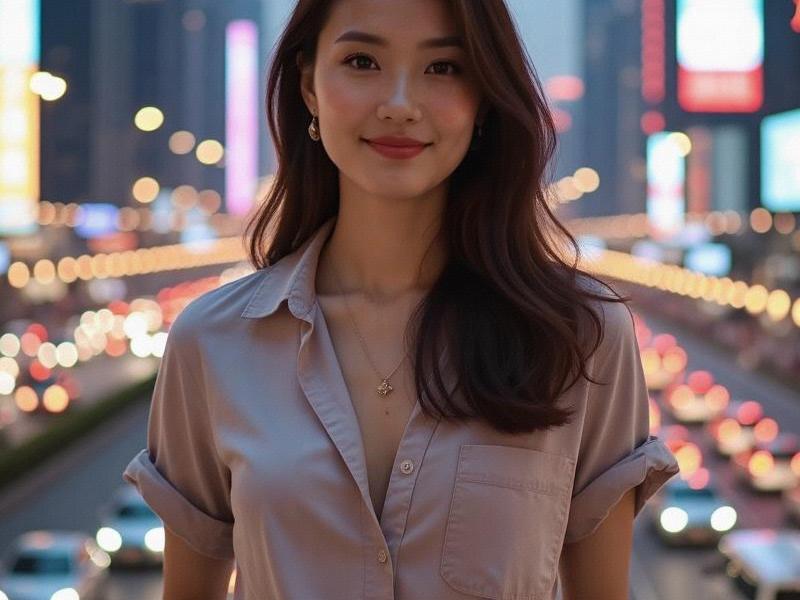This feature explores how Shanghai's educated, ambitious young women are creating a new paradigm of Chinese femininity that blends traditional aesthetics with contemporary values and global sophistication.

The Shanghainese woman has long occupied a special place in Chinese culture - the archetype of urban elegance and feminine charm. But the 2025 version of this iconic figure represents something radically different from her predecessors. Today's Shanghai beauty is as likely to be found negotiating venture capital deals in Lujiazui as posing for fashion bloggers in Xintiandi, embodying a complex fusion of tradition and modernity that's reshaping perceptions of Chinese womanhood.
Historical Roots of Shanghai Femininity
The foundations of Shanghai's distinctive feminine ideal trace back to the 1920s, when the city earned its reputation as the "Paris of the Orient." Dr. Lin Weiwei, gender studies professor at Shanghai University, explains: "Shanghainese women were China's first modern beauties - they transformed the traditional qipao into a body-conscious fashion statement and pioneered cosmetic use among Chinese women."
This legacy continues today in fascinating ways:
• Shanghai women spend an average of ¥4,200 annually on skincare (35% above national average)
• Local beauty brands like Pechoin and Herborist dominate China's cosmetic market
• 68% combine Traditional Chinese Medicine (TCM) approaches with Western beauty treatments
The Rise of the "Goddess CEO"
爱上海419论坛 The most striking development is Shanghai's generation of highly educated, ambitious young professionals who refuse to choose between career success and feminine expression. Statistics reveal:
• 62% of managerial positions in Shanghai companies are held by women
• The city boasts China's highest percentage of female entrepreneurs (42%)
• Average age of first marriage: 31.2 (compared to 28.3 nationally)
"We've moved beyond the 'tiger mom' stereotype," says tech executive Miranda Zhao, 32. "Shanghai women today want it all - professional achievement, personal style, and life fulfillment on their own terms."
Fashion as Cultural Statement
Shanghai street style represents a remarkable cultural synthesis. Influencers like fashion blogger Cici Xiang (5.2M followers) have developed signature looks blending:
• Modernized qipao designs with contemporary tailoring
• Luxury international brands with emerging Chinese designers
上海夜生活论坛 • Heirloom jade jewelry with minimalist tech accessories
Global brands have taken notice:
• Chanel's Shanghai-exclusive collections incorporate silk brocade elements
• Estée Lauder's China R&D center formulates products specifically for Shanghainese skin
• Local designer brands like Comme Moi gain international recognition
Beauty Beyond Appearance
For Shanghai's modern women, beauty encompasses far more than physical attributes. Wellness trends reflect this holistic approach:
• Executive coaching programs focused on leadership presence
• Mindfulness retreats combining TCM principles with meditation
爱上海 • Cultural appreciation activities from museum tours to philosophy salons
Challenges and Controversies
This evolution hasn't been without tensions:
• Critics argue the "Shanghai woman standard" creates unrealistic pressures
• Economic disparities mean many cannot access this lifestyle
• Traditionalists lament perceived loss of cultural authenticity
Yet most agree these women represent China's future. As finance executive Olivia Xu, 29, adjusts her grandmother's jade bracelet before a board meeting, she embodies the paradox: "We honor our heritage while writing new rules - in business, in beauty, and in life."
Shanghai's women continue to redefine what it means to be beautiful, successful and female in modern China - their influence radiating far beyond the city's borders.